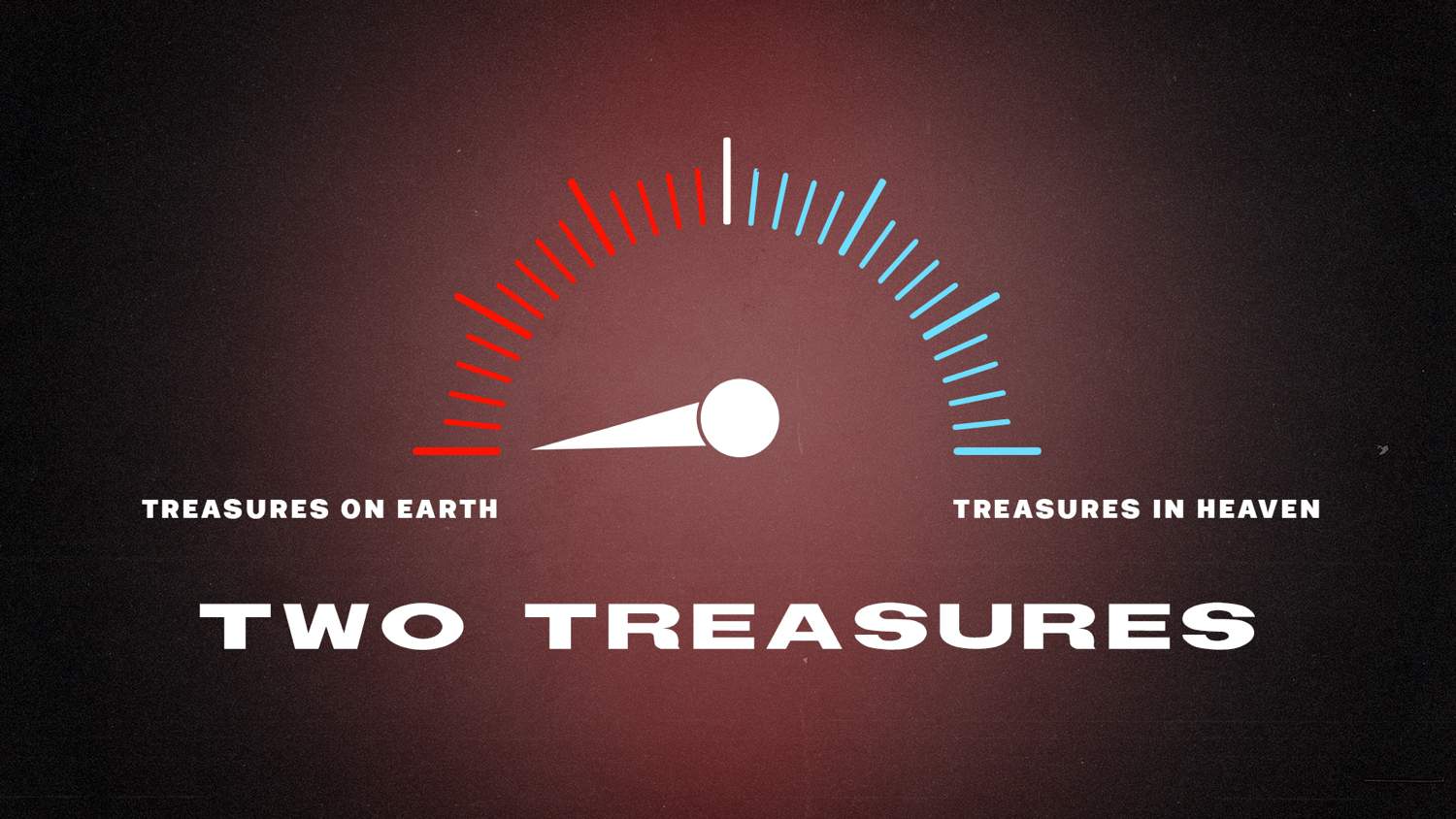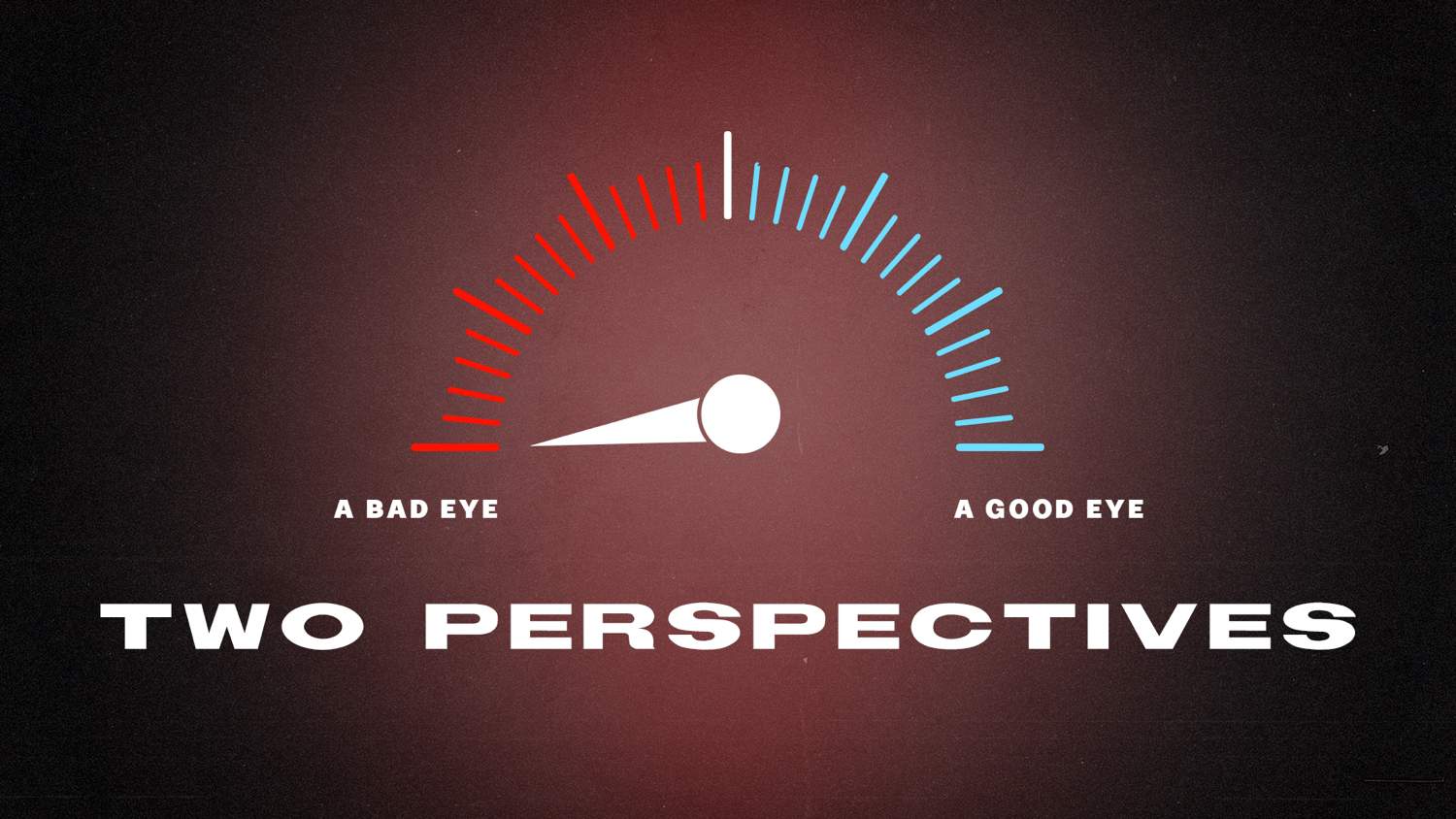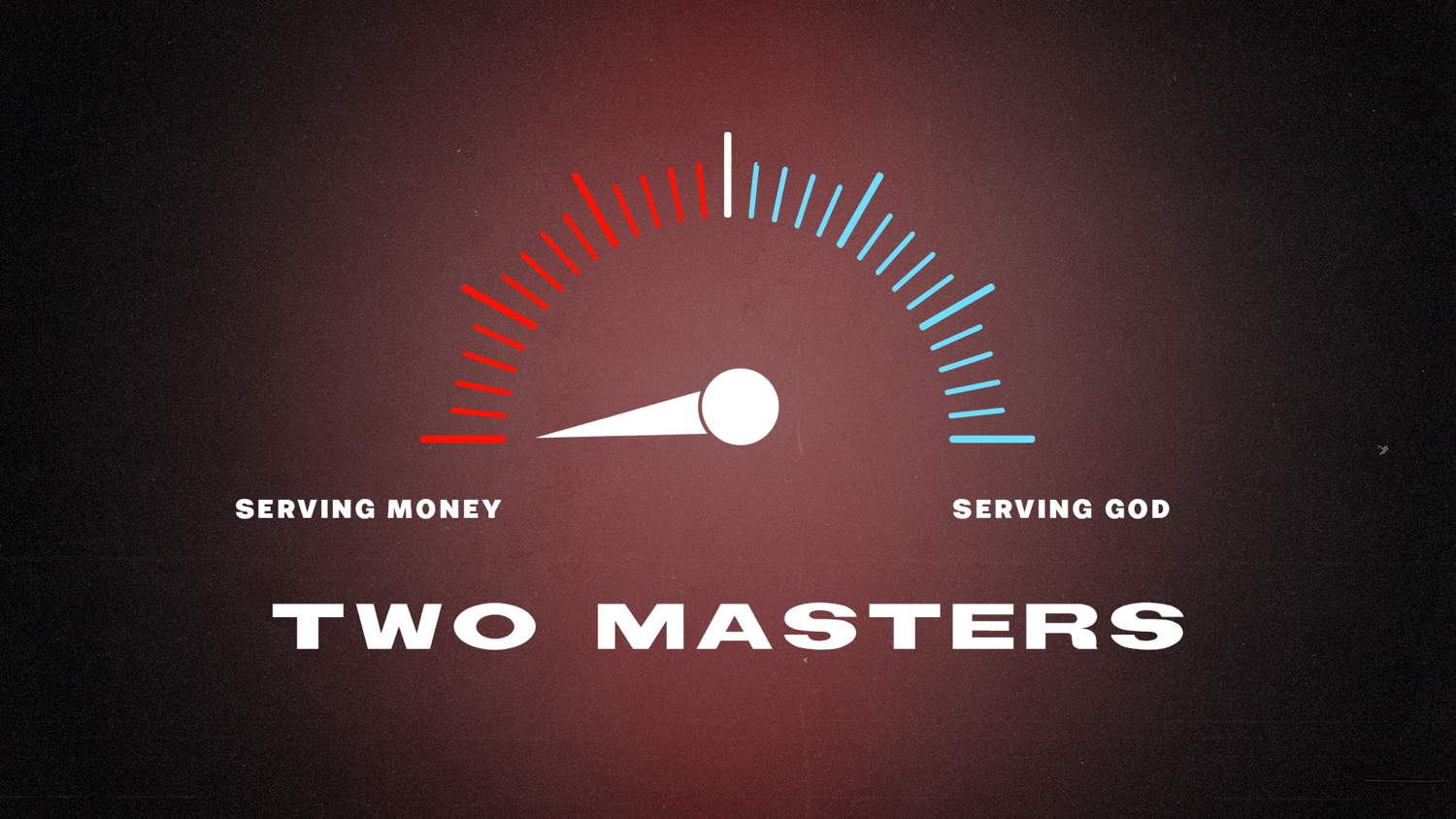The Good Life and Money (Matthew 6:19-34)

Big Idea: What attitude should we have toward money? Don’t treasure it. Trust God for it.
Money is always on our mind.
I know. Some people say that sex is always on people’s minds. They say that men think about sex every seven seconds — although how they would know that is beyond me.
But according to at least one report, money is always on our mind. One in four says that money is the thing that they think about most on a daily basis. This trend is consistent among different age groups and income levels, with younger people focusing more on love lives and seniors prioritizing health.
We’re concerned about a lot of things:
- making ends meet
- sticking to a budget
- planning for retirement
- managing debt
- handling investments (if you have them)
We in Toronto are not exempt from these concerns. When I tell people that I live and pastor in Liberty Village, people often say, “Oh, that rich area.” I always laugh. I explain to them that I don’t know a lot of rich people in Liberty Village. Many hardworking people earn a decent income but struggle with high rents, student loans, and other financial concerns.
Richard Florida, a professor at U of T, said that he asked his business students one day how they could afford to live in Toronto, ranked one of the least affordable cities in the world. The answer: the bank of Mom and Dad. And those are business students, who will probably make more than most of us. In other words, it’s hard to live here without outside help, which not all of us have.
So we need to talk about money. It is always on our minds, and by virtue of the fact that you live here, it’s probably a hot issue in your life as well.
What may be surprising to you is that this is not a new issue. We are not the first generation to experience money problems! In the passage that we just read, Jesus addresses money. What amazes me about this passage is how current it is. They may have been dealing with a completely different economic system and currency, but there’s not much difference between them and us. They, too, faced the problem of how to deal with money, and not only that, how to deal with anxiety about money.
And that’s what we’re going to look at today. Two questions: how do we deal with money? And how do we deal with anxiety about money?
And in this passage, Jesus answers both of these questions with two very clear principles.
Don’t Treasure It (6:19-24)
Here’s the first principle: Don’t lay up treasures on earth.
Jesus is not against us having treasures. If you think Jesus is anti-treasure, you’re wrong. He’s just concerned about where our treasures are. And so in verses 19 to 24, he presents us with a series of stark choices. Decide between God and money. You have to make a choice.
In these verses, He gives us three pairs, and says that we have to choose one or the other:
- Two treasures: treasures on earth or treasures in heaven
- Two perspectives: a bad eye or a good eye
- Two masters: serving money or serving God
It’s very interesting. I’d like to think that we could end up somewhere in the middle with each of these, but Jesus says it’s binary. We can have one or the other, but there’s no in-between.
Two Treasures

Take the first one: treasures on earth or treasures in heaven. Jesus says:
Do not lay up for yourselves treasures on earth, where moth and rust destroy and where thieves break in and steal, but lay up for yourselves treasures in heaven, where neither moth nor rust destroys and where thieves do not break in and steal. For where your treasure is, there your heart will be also. (Matthew 6:19-21)
We have to be clear what Jesus means here. He’s not forbidding having money. The Bible nowhere condemns saving or the responsible use of money. In fact, it commends it. What he’s writing here isn’t about the amount of money that you have. I would argue that what he commands is just as much of a challenge for us who don’t have a lot of money as it is for those who have a lot.
Here’s what he is saying. You have to make a choice whether you value money and possessions, or whether you value God. I know we think we can value both, but Jesus says we have to choose. One is going to call for our ultimate allegiance.
It’s very easy to treasure money. I just visited a friend’s new house yesterday. It was gorgeous. It’s got everything I would like in a house and that I can’t afford. Every time I have stayed in a five-star hotel, I’ve thought, “I could get used to this. It would not take much of an adjustment to live here.” Laying up treasures on earth comes naturally to us. But according to Jesus, it’s not the way to live if we live well.
Why not? Jesus tells us. Money does give you a lot of options. But there is one major problem with money. It’s this: “all human money is susceptible to decay, loss, theft, destruction, and deterioration. It is not a matter of if human treasures will eventually be lost somehow but only a matter of when” (Jonathan Pennington).
In contrast, treasuring eternal things means that we’re investing in something that will last for eternity.
Several years ago, construction workers were laying a foundation for a building outside the city of Pompeii. They found the corpse of a woman who must have been fleeing from the eruption of Mt. Vesuvius but was caught in the rain of hot ashes. The woman’s hands clutched jewels, which were preserved in excellent condition. She had the jewels, but death had stolen it all. That’s the bottom line in life. Worldly treasure is not a wise investment because you can’t take it with you.
It would make sense to invest in what will ultimately last. And that’s what Jesus is saying. We’re going to treasure something. When we treasure temporary wealth, we’re putting our hopes in something that simply won’t last. The alternative, Jesus says, is to invest in what will last for eternity. “You can’t take it with you— but you can send it on ahead” (Randy Alcorn). How do we send it ahead? By investing it in what will last — by realizing that everything we have is God’s anyway, and then by using our money to serve him through giving to churches like this one, and by strategically using all that we have for God’s kingdom. Giving is the antidote to materialism.
Jesus makes a surprising statement. He says, “For where your treasure is, there your heart will be also” (Matthew 6:21). Jesus says that our whole lives will follow whatever it is that we treasure. Whatever absorbs our attention will shape our entire lives. We become what we love. So choose carefully what you treasure, because it will shape your heart in ways you can’t even imagine. Your heart will always follow what you do with your money.
I like how one old preacher applied what Jesus says.
I do not cling to these things. They do not become the centre of my life and existence. I do not live for them or dwell upon them constantly in my mind; they do not absorb my life. On the contrary, I hold them loosely… I am not governed by them; rather do I govern them; and as I do this I am steadily securing, and safely laying up for myself, “treasures in heaven.” (Martyn Lloyd-Jones)
You have to choose what you treasure.
Two Perspectives

But Jesus gives two other polarities. He says you’ll have a bad eye, or a good eye. This one is a little bit harder to understand. I have these glasses. Occasionally they’ll get smudged, and it drives me crazy. Glasses are no use when they don’t help you see more clearly, and seeing clearly is really important.
That’s the picture Jesus gives us. We don’t always see things clearly. Sometimes our vision is clouded. We think we need a certain standard of living. Our vision is clouded by greed, and it will ruin your life if you let it.
But there’s an alternative: to see clearly. Generosity will free you and help you see the world more clearly. You have to choose.
Two Masters

And then there’s one more polarity: serving God or serving money.
No one can serve two masters, for either he will hate the one and love the other, or he will be devoted to the one and despise the other. You cannot serve God and money. (Matthew 6:24)
Again, we think we can serve both at once. But it’s like an experience that I have regularly. I’m driving somewhere. On my dashboard I have Google Maps giving me driving directions based on the latest maps as well as live traffic conditions. Beside me, I have Charlene giving me driving directions based on… well, let’s not go there. At some point I have to choose. I can’t follow both Google Maps and Charlene. I have to make a choice. And we all know that there are consequences attached to the choice that I make.
Jesus is blunt: you have to choose. God and money are giving us two contradictory sets of instructions. Money is promising us happiness, and calling for self-centered living. God is calling us to serve him and others, and to hold on to stuff loosely. We have to choose. We can’t listen to both. And there are consequences attached to the choice that we make.
Will God or possessions rule your life? Which one will call the shots? The answer to this question will determine the direction of your whole life. Make your choice carefully!
Listen. This passage is not hard to understand. The problem is that we think that the good life comes from valuing stuff more than God. It goes completely against the way we normally think.
But here’s the truth: the happiest people on earth are giving people. Don’t believe me? Read Randy Alcorn’s book The Treasure Principle for examples. He writes, “Once we understood that we were giving away God’s money to do God’s work, we discovered a peace and joy we never had back when we thought it was our money!”
I don’t know about you, but I want this peace and joy in my finances. The way to do this: don’t treasure the stuff that won’t last. Invest in God’s economy instead.
Okay, sounds good. But we still have bills to pay, and many of us may think that if we start to care more about God than our money, we’re going to be in a lot of financial trouble.
It’s why Jesus gives us the second principle. The first one won’t work alone. We need both if we’re going to flourish financially.
Trust God for It (6:25-34)
Jesus gives a very clear command in verse 25: don’t be anxious. Jesus repeats this three times in this passage. Don’t worry about money. Worrying about money is not a new problem!
Why shouldn’t we worry? We could look at this passage for weeks. There are about eight or nine arguments for why we shouldn’t worry about money. But let me summarize the three big arguments that form the basis for all the others in this passage. One is practical and then there are big two theological reasons not to worry about money:
- It doesn’t do any good
- God provides
- God cares
Okay, so there’s the practical reason not to worry in verse 27: it doesn’t do any good anyway. That’s the irony with worry. Corrie Ten Boom said it best: it doesn’t empty tomorrow of its sorrow, but it empties today of its strength. Worry is all negative. It doesn’t help us at all.
The best two reasons to trust God are deeply theological. Here’s the question to ask when it comes to money. What do you know about God to be true? And Jesus tells us two truths that would take away all anxiety if we really grasped them: God provides, and God cares.
God Provides
Jesus points out that God has a pretty good track record of providing. Just think of how he’s provided for the birds, lilies, and grass. If God does such a good job of providing for them, why would we think that he’s going to have a hard time providing for us?
I grew up in a poor family. My mother was a single mother when there weren’t many single mothers around. She didn’t have a job. She didn’t have a hope of having enough money to pay the mortgage and feed the kids. And yet, somehow, she had enough. She never had more, but she always had enough to get by. Now she says she doesn’t know how the money stretched the way that it did. Seeing how God provided for her has helped me when we’ve been through tough times financially ourselves.
It’s the same way with our church. We are a church plant. We started out with no people and no money. God has been so faithful in providing for us. I have so many stories of God providing at just the right time in ways that I couldn’t expect. Now, whenever I feel the anxiety rising, I just have to look back and remember how God has provided for us in the past.
God Cares
The other big reason that Jesus gives is this: God cares. You are worth far more to God than birds and grass. If God provides for them, of course he’ll provide for you, because he cares for you more. He knows what you need. God cares about you and your needs.
John Stott was blunt. “To become preoccupied with material things in such a way that they engross our attention, absorb our energy and burden us with anxiety is incompatible with both Christian faith and common sense. It is distrustful of our heavenly Father, and it is frankly stupid.” I like that.
God has all the resources of eternity at his fingertips. And he has given us his Son. He has offered us eternal life. Jesus was willing to give up his life for us. How will he not also graciously give us all things?
Here’s the basic message that this passage communicates to us: What attitude should we have toward money? Don’t treasure it. Trust God for it.
Jesus himself gives us this principle in verse 33: “But seek first the kingdom of God and his righteousness, and all these things will be added to you.” Don’t treasure wealth; treasure the kingdom. Don’t worry about it; when you treasure the kingdom, God will take care of everything else as well.
We have a choice. We can treasure money, and our lives will be consumed by it. We’ll probably get the money too, but that’s it. And then we’ll lose it all.
Or: we can discover the one who lost everything for us, who became poor so that we could be made eternally rich. We can pursue him as our greatest treasure, and in the meantime he will provide everything we need as well.
Which will it be? Don’t treasure what won’t last. “He is no fool who gives what he cannot keep to gain that which he cannot lose” (Jim Elliot).





